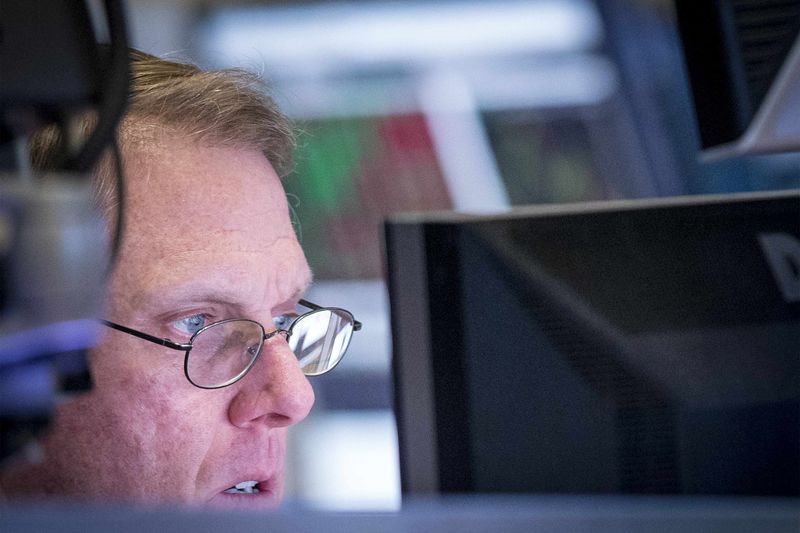Benzinga - by Piero Cingari, Benzinga Staff Writer.
The U.S. economy sharply disappointed economist growth estimates last quarter, yet it surpassed price pressure predictions, indicating that inflation is weighing on real economic activity — a scenario typically referred to as stagflation.
The gross domestic product (GDP) advanced at a 1.6% annualized rate in the first quarter of the year, significantly slowing down compared to both the 3.4% growth in Q4 2023 and the 2.5% expected.
It also marks the lowest expansion since the contraction in Q2 2022. Simultaneously, price pressures — as indicated by the Personal Consumption Expenditure (PCE) price index — rose during the quarter.
The headline PCE price index recorded a 3.4% quarter-on-quarter annualized increase, up from 1.8% earlier, while the core PCE price index — the Fed’s preferred inflation gauge —soared from 2% to 3.7%, above the expected 3.4%.
Economists and market experts weigh in on the numbers released Thursday by the Bureau of Economic Analysis.
Experts Signal Rising Stagflationary Risks For The US Economy “For those who do not understand what just happened, we have a weakening economy with rising inflation: The worst possible outcome for the Fed,” the Kobeissi Letter wrote on social media X.
Mohamed El-Erian, chief economic adviser at Allianz, emphasizes that any hope pinned on the recent US GDP data to alleviate pressure on US government bond yields will be completely disappointed due to another significant inflation reading.
This dual challenge of sluggish growth coupled with elevated inflation “is problematic for the economy and markets, with political and social spillovers,” the economist added.
Echoing this message, macroeconomist Craig Shapiro remarked “Weaker than expected GDP and Personal Consumption but higher than expected Core PCE Index and better labor data. That’s a stagflationary mess for folks begging for the Fed put to be activated.”
“This report was the worst of both worlds: economic growth is slowing and inflationary pressures are persisting,” claimed Chris Zaccarelli, chief investment officer for Independent Advisor Alliance
Zaccarelli commented on the Federal Reserve’s desire for inflation to begin decreasing persistently, whereas the market is keen on witnessing growth in economic activity and corporate profits.
Consequently, if neither of these trends aligns with expectations, “that's going to be bad news for markets.”
PCE figures are under scrutiny as slowing inflation remains the primary concern for the Federal Reserve. The debate over whether to cut or increase interest rates has intensified, contributing significantly to the recent uncertainty in bond and stock markets, according to Zaccarelli.
Ted Zhang, associate portfolio manager at Revere Asset Management, observed yields surging amid soft GDP growth and increased PCE prices, with commodities also displaying strength, reminiscent of the stagflation era of the 1970s.
Yields on two-year Treasury notes surpassed the 5% mark, while those on the 30-year benchmark rose to 4.83%. Markets negatively reacted, with both bonds and stocks displaying heavy losses.
The iShares 20+ Year Treasury Bond ETF (NASDAQ:TLT) fell 1%, hitting mid-November 2023 lows, while the S&P 500, as tracked by the SPDR S&P 500 ETF Trust (NYSE:SPY) fell 1.4%.
Chart: Treasury Yields Rise, Stocks Fall Following Q1 Stagflationary Headwinds
Ernie Tedeschi, director of economics at The_Budget_Lab and former chief economist at the White House Council of Economic Advisers, offered a distinct perspective.
The expert highlighted that the GDP miss was primarily due to weaknesses in volatile components, particularly net exports.
On the other hand, private domestic final purchases, representing “core GDP” consisting of consumption and fixed investment, recorded a “very strong” growth of 3.1%.
The concerning aspect of this report isn’t new: quarterly inflation has accelerated. While Tedeschi believes Q1 might overstate the remaining excess inflation—suggesting a trend closer to 2 1/2-3%—it still triggers anxiety.
Real GDP growth came in at 1.6% in Q1, softer than expected. But that appears to be driven by weakness in volatile components, especially net exports. Private domestic final purchases–"core GDP" made up of consumption & fixed investment–grew 3.1%, a very strong print. pic.twitter.com/2hidy6gmb2— Ernie Tedeschi (@ernietedeschi) April 25, 2024
Now Read: Treasury Yields Reach 5-Month High, Lift Mortgage Rates; Expert Warns ‘Federal Debt Blob Is Out Of Control’
© 2024 Benzinga.com. Benzinga does not provide investment advice. All rights reserved.
